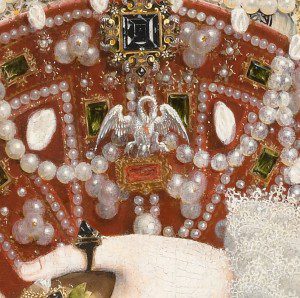One of the heartening things about our times has been the recovery, at least in some quarters, of the language of virtue and vice. At a popular level, this owes much to William Bennet and his concern for the moral formation of children, and at an academic level, the smoking gun points, above all, to Alasdair MacIntyre—especially his book After Virtue, which, ironically, has helped spawn a whole range of inquiries into the nature and possible recovery of virtue. Indeed, some future intellectual historian might consider writing After ‘After Virtue.’
I’ve been reminded of the richness of the virtue tradition in recent years when teaching Aristotle, Thomas Aquinas, and Dante in Gordon College’s honors program, The Jerusalem and Athens Forum. At the heart of medieval catechesis on moral formation was the notion of the four cardinal virtues (prudence, justice, temperance, courage), derivative from Plato and other classical writers, and the three theological virtues (faith, hope, and love), derivative from St. Paul (I Corinthinians 13). One sees how this tradition “cashes out” in a popular prayer by Thomas Aquinas:
“Lord, grant that I may abide on the firm ground of faith, be sheltered by an impregnable shield of hope, and be adorned in the bridal garment of charity. Grant that I may through justice be subject to You, through prudence avoid the beguilements of the devil, through temperance exercise restraint, and through courage endure adversity with patience.”
Sadly, because this discourse was embedded in medieval scholasticism, some (not all) sixteenth-century humanists and reformers threw much of it out during the Reformation in a well-intentioned effort to get back to the “Bible alone.” If there was ever a case for throwing out the baby with the bathwater, this qualifies.
A more recent writer than Aquinas in the virtue tradition is the late German philosopher, Josef Pieper. I have found great richness over the years in his books The Four Cardinal Virtues and Faith, Hope, Love. In a shorter book, A Brief Reader on the Virtues of the Human Heart, Pieper nicely sums up the seven-virtue template for the vital Christian life:
” First: the Christian is one who, in faith, becomes aware of the reality of the triune God. Second: the Christian strives, in hope, for the total fulfillment of his being in eternal life. Third: the Christian directs himself, in the divine virtue of love, to an affirmation of God and neighbor that surpasses the power of any natural love. Fourth: the Christian is prudent; namely he does not allow his view on reality to be controlled by . . . his will, but rather he makes . . . [his] will dependent upon the truth of real things. Fifth: the Christian is just; that is, he is able to live “with the other” in truth. . . . Sixth, the Christian is brave, that is, he is prepared to suffer injury and, if need be, death for the truth. . . . Seventh: the Christian is temperate; namely he does not permit his . . . desire for pleasure to become destructive and inimical to his being.”
To be sure, this list should not be construed as exhaustive What about humility, generosity, hospitality? And so on.
While the ambitious reader, sooner or later, should tackle Aquinas on the virtues, for an introduction, one could much worse than burying one’s nose in the writings of Josef Pieper.












